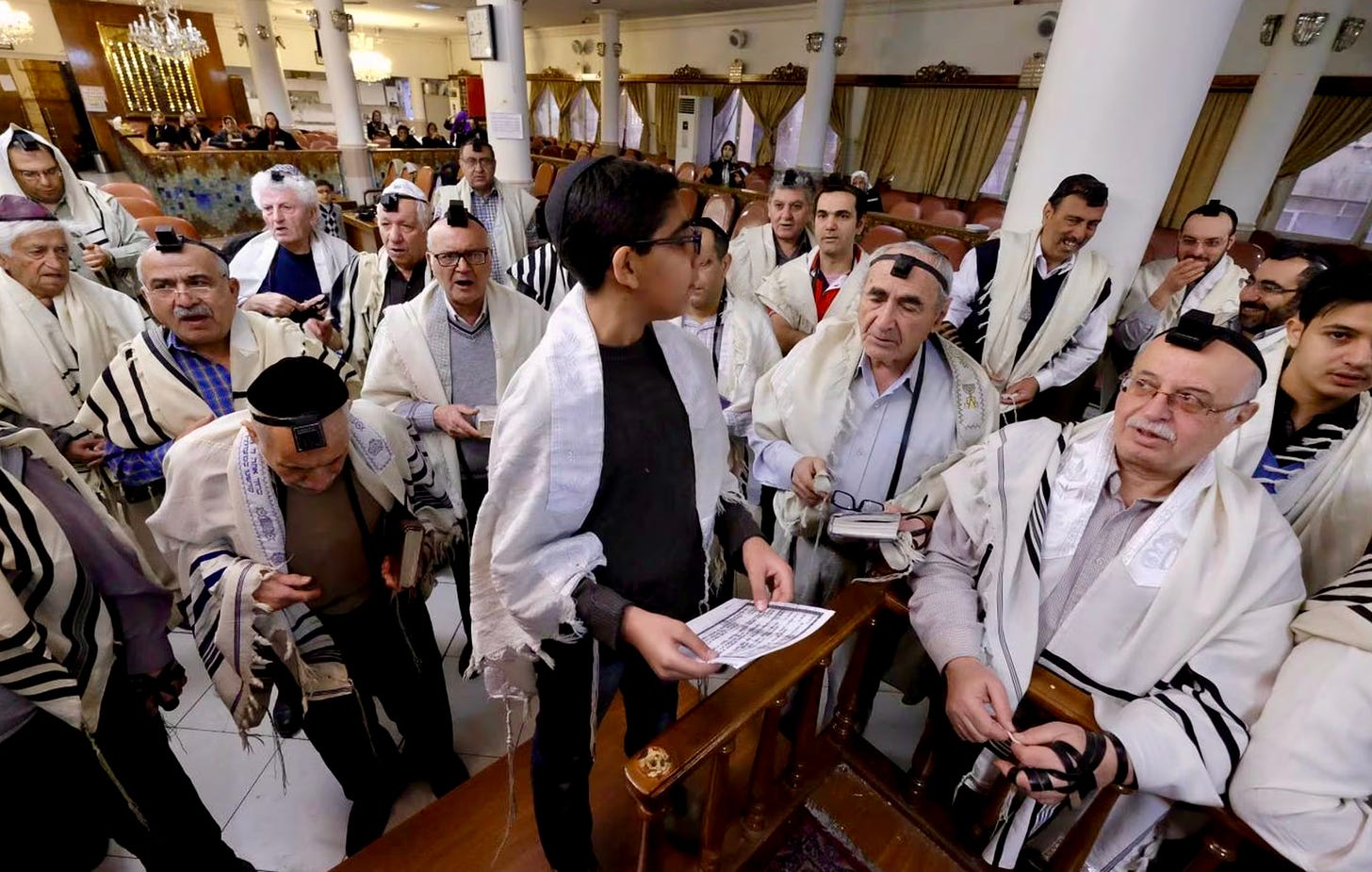Echoing run-up to Iraq invasion, Israel and its allies exaggerate Iran threat
For decades, Israeli government officials — chief among them, Prime Minister Benjamin Netanyahu — have accused Iran of plotting a new Holocaust against the millions of Jews who call the Zionist state home. Netanyahu has said Iran is “planning another genocide against our people,” and wants to “destroy another six million plus Jews.”
Western journalists are quick to quote these claims, yet slow to publicize contradictory evidence — such as the fact that Iran is home to the Middle East’s second-largest population of Jews, who freely practice their faith, peacefully coexist within the Islamic republic and even have a seat in the legislature.
It’s said that “charity begins at home.” If we’re to believe Netanyahu and his confederates in America, wouldn’t an Iranian genocide against Jews begin there too?
Having long been subjected to the genocidal-Iran narrative, the average American probably assumes there’s no such thing as an Iranian Jew. However, according to varying estimates, there are 9,000 to 20,000 of them in a land where the Jewish presence goes back nearly 3,000 years.
That’s well lower than the 100,000 or more Jews who lived in Iran in the years leading up to the 1979 revolution. The uncertainty of what life would be like in an Islamic republic — culturally, economically and in terms of personal safety — prompted tens of thousands to leave for Israel, the United States and other countries.
Many of them were alarmed when Habib Elghanian, a prominent Iranian Jewish industrialist with ties to the deposed Shah, was arrested just a few weeks after the revolution and charged with corruption and spying for Israel. Prosecutors also accused him of soliciting money for the Israeli Defense Forces, and thus being complicit “in murderous air raids against innocent Palestinians.” In May 1979, he was executed by firing squad.
Though Elghanian’s execution shook Iranian Jews, it also precipitated a critical development that has helped assuage their fears ever since.
The day after the execution, two rabbis and four younger intellectual Jews arranged a visit with the Ayatollah Khomeini. By conveying that Iran’s Jews considered themselves Iranian first and would support their fellow citizen’s choice of a new system of government, they hoped to elicit a guarantee against Jews being targeted.
To their surprise, Khomeini welcomed them as VIPs. After a literal standoff that saw the Jewish delegation and the ayatollah both deferentially waiting for the other to take a seat first, they all sat on the floor in a circle.
Khomeini lauded Moses as one of three prophets sent by God to guide humanity. Then, to the great relief of his guests, he drew a sharp distinction between the Israeli government and Iran’s Jews, declaring:
“Moses would have nothing to do with these pharaoh-like Zionists who run Israel. And our Jews, the descendants of Moses, have nothing to do with them either. We recognize our Jews as separate from those godless, bloodsucking Zionists.”
Khomeini then issued a fatwa — an Islamic religious leader’s formal decree — asserting that Jews are a protected minority and forbidding violence against them.
Jews do not, however, hold a fully equal place in Iranian society. Most notably, they may not hold senior government posts or become judges. Jews serve in the Iranian military, but cannot do so as officers. They can’t inherit property from Muslims, but if a member of a Jewish family converts to Islam, that person inherits everything.
To a great extent, however, Iran’s Jews live much like anyone else in the country, a reality sharply at odds with Western assumptions.
While promoting Zionism or the Israeli government is illegal for anyone, Jews openly display their identity and practice their faith. Iranian Jews wear yarmulkes and prayer shawls in public. Muslims pass by without giving a second glance — after all, Jews’ presence in Iran and Persia goes back nearly three millennia, and the country is home to many important Jewish religious sites.

There are 13 synagogues in Tehran alone. Tourists are surprised to find that, unlike in Europe and elsewhere, these don’t have locked doors, metal detectors or security guards. Tehran also has a Jewish seminary and a mikveh ritual bath facility.
In 2015, President Hassan Rouhani officially recognized Saturday as the Jewish day of religious observance, freeing Jews to observe their Sabbath (the typical Iranian workweek and school week goes from Saturday to Wednesday with a half-day on Thursday).
Jews send their kids to Jewish schools, enjoy kosher restaurants and operate Tehran’s oldest charity hospital, where 96% of patients are Muslims. “When I am sick, I go across the street [to the Jewish-run hospital],” a Muslim seminary student told the New York Times. “They might have a different religion, but they are fellow Iranians.”
That sentiment is widely embraced in Iran. In fact, the Anti-Defamation League’s 2014 Global Index of antisemitism (its most recent) found Iranians to be the least antisemitic of any population in the Middle East.
By some indications, Iranian Jews are more accepted by Muslims in Iran than by Jews in Israel. As a third-generation Iranian-Israeli explained to Radio Free Europe, “In Israel, we have racism towards people that came from Islamic states. As a child, I suffered a lot because I’m Persian.”
Read it all: https://starkrealities.substack.com/p/irans-jewish-population-belies-claims
